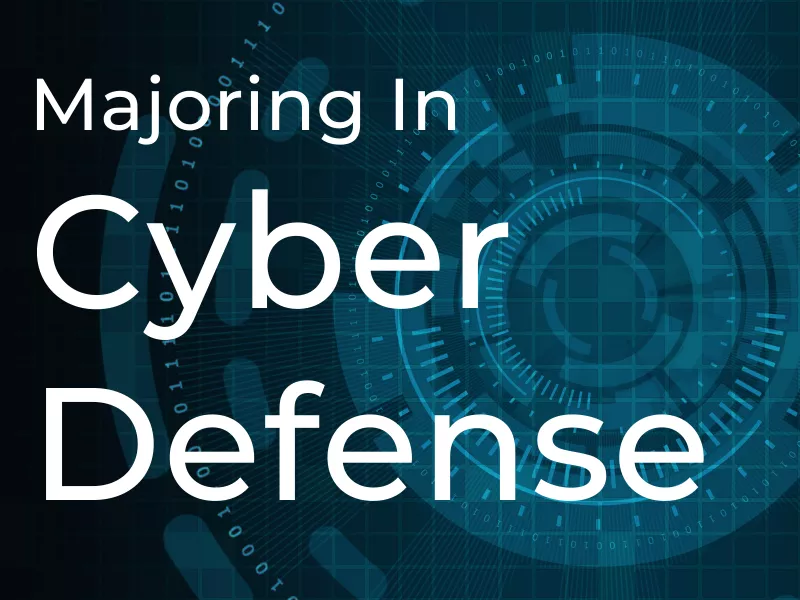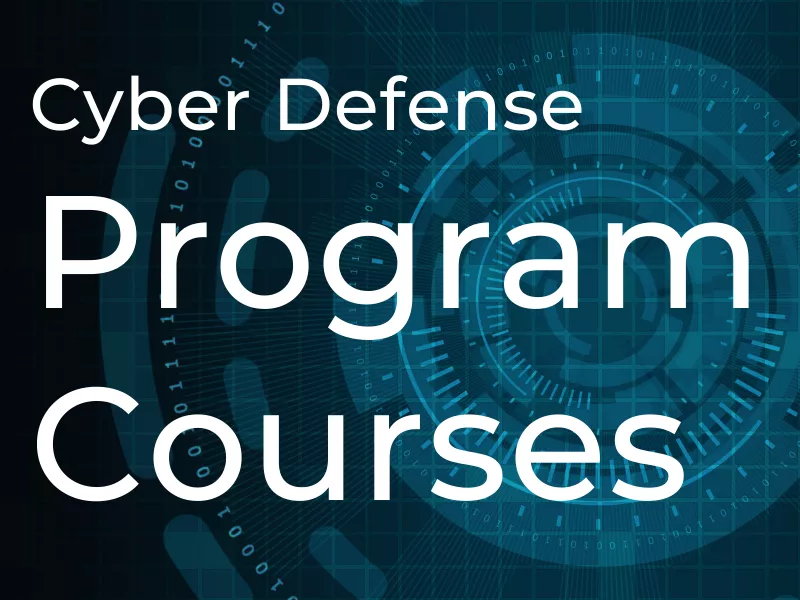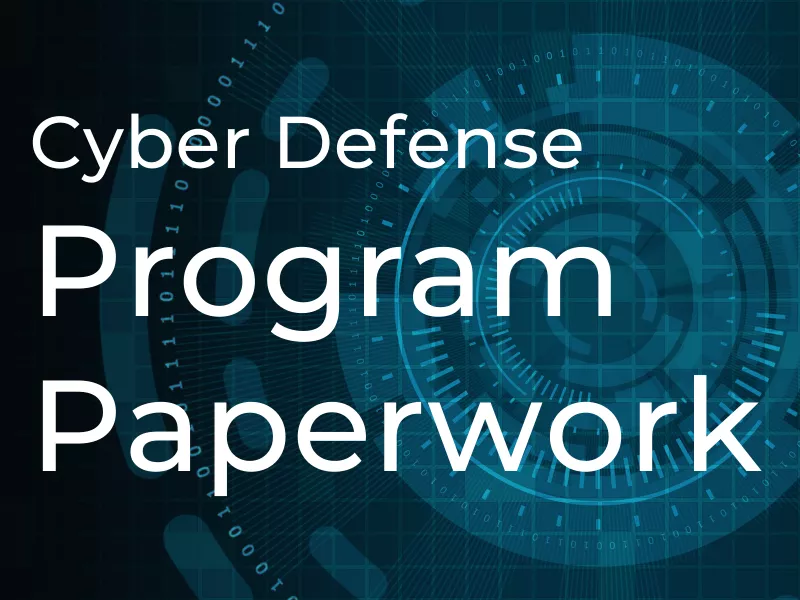
Majoring in Cyber Defense
Program Courses
Cyber Defense Websites

Cyber Defense Software
This is a list of software used in the Cyber Defense classes. This is not an all-inclusive list. Since the Cyber Defense field changes daily, so does the software used to defend various attacks.
It is recommended that if you download this software, immediately check to see if there are any updates first. Then follow the installation instructions. Some of these are free and some will require payment for the more complex versions. I always recommend that the Trail version is used first and then if you like the results, you can make the decision to purchase an updated version.
USE THESE AT YOUR OWN RISK!!!
- Oracle VM VirtualBox 5.1.34
- Windows Server 2016 evaluation copy ISO Note: You will need to complete a form to download the ISO
- Cisco Packet Tracer 7.1.1 Note: You will have to register (it’s free) to download and install Packet Tracer. See steps below.
- Wireshark 2.6.0
- Metasploit Pro Trial You will have to register using a real email address, not a Gmail/Yahoo/Hotmail webmail address. The trial is good for only 14 days, but you can keep requesting a new trial key indefinitely.
- Valhalla Honeypot
- Cisco TFTP Server 1.1 Be careful, this site is full of advertising links. Ensure that you download the TFTP server. The file will be named something like ciscotftp11.exe.
- MailEnable Email Server Select Standard Edition (FREE) Download
- Mozilla Thunderbird Email Client
- MetaGeek InSSIDer Office trial You will have to complete a form to obtain the trial license.
- PuTTY
- Telchemy IP Impairment Simulator
- Advanced Port Scanner
- Angry IP Scanner
- Netscanner64
- Nmap for Windows
CompTIA Certification Requirements
CompTIA A+ 220-1001 & 220-1002
If you could only choose one certification to earn as an aspiring IT pro, you really can't go wrong with CompTIA's A+ certification. Validating a professional's ability to troubleshoot and solve problems for everything from networking and operating systems to mobile devices and security, having an A+ certification shows employers you've got what it takes to succeed as an in-demand IT expert. This course will help you ace the CompTIA A+ 220-1001 and 220-1002 exams, covering mobile devices, networking technology, security, and more.
- Prep to ace the CompTIA A+ 220-1001 & 220-1002 exams
- Familiarize yourself w/ mobile devices, networking technology, hardware, virtualization & cloud computing
- Explore installing & configuring operating systems, expanded security & software troubleshooting
CompTIA Network+ N10-007
The CompTIA Network+ is an internationally recognized certification, validating an individual’s fundamental IT networking knowledge and skills. This course covers the certification's objectives in order to help you get ready for the exam. Jump in, and you'll tackle key concepts, like network Installation, routing, operations, and more.
Deepen your understanding of network architectures, naming, devices & more
- Jump into the Ethernet basics
- Explore TCP/IP applications & network protocols
- Learn about virtualization & cloud computing
CompTIA Security+ SYS-501
Covering the latest trends and techniques in risk management, risk mitigation, threat management, and intrusion detection, CompTIA Security+ is the first security certification IT professionals should earn. This foundational credential establishes the core knowledge required of any cybersecurity role and provides a springboard to intermediate-level cybersecurity jobs. This course will help you add this powerful certification to your resume by preparing you to ace the Security+ SY0-501 exam.
- Learn how to provide operational, information, application & infrastructure level security
- Explore securing networks to maintain availability, integrity & confidentiality of critical information
- Learn how to operate within a set of rules, policies & regulations wherever applicable
- Comprehend risk identification and mitigation





